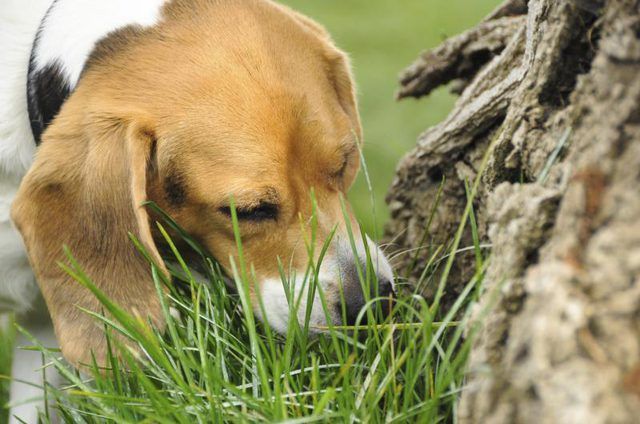Bulbs
Flower Basics
Flower Beds & Specialty Gardens
Flower Garden
Garden Furniture
Garden Gnomes
Garden Seeds
Garden Sheds
Garden Statues
Garden Tools & Supplies
Gardening Basics
Green & Organic
Groundcovers & Vines
Growing Annuals
Growing Basil
Growing Beans
Growing Berries
Growing Blueberries
Growing Cactus
Growing Corn
Growing Cotton
Growing Edibles
Growing Flowers
Growing Garlic
Growing Grapes
Growing Grass
Growing Herbs
Growing Jasmine
Growing Mint
Growing Mushrooms
Orchids
Growing Peanuts
Growing Perennials
Growing Plants
Growing Rosemary
Growing Roses
Growing Strawberries
Growing Sunflowers
Growing Thyme
Growing Tomatoes
Growing Tulips
Growing Vegetables
Herb Basics
Herb Garden
Indoor Growing
Landscaping Basics
Landscaping Patios
Landscaping Plants
Landscaping Shrubs
Landscaping Trees
Landscaping Walks & Pathways
Lawn Basics
Lawn Maintenance
Lawn Mowers
Lawn Ornaments
Lawn Planting
Lawn Tools
Outdoor Growing
Overall Landscape Planning
Pests, Weeds & Problems
Plant Basics
Rock Garden
Rose Garden
Shrubs
Soil
Specialty Gardens
Trees
Vegetable Garden
Yard Maintenance
Pet-Friendly Grass and Weed Killer
Pet-Friendly Grass and Weed Killer. It might seem as though you have to choose between the yard you want and your pet's safety. Many weed- and grass-killing chemicals can harm your pet if he eats them, but you can also find safe items. These must still be used responsibly, but they enable you to kill grass and weeds in your yard and let your pet...

It might seem as though you have to choose between the yard you want and your pet's safety. Many weed- and grass-killing chemicals can harm your pet if he eats them, but you can also find safe items. These must still be used responsibly, but they enable you to kill grass and weeds in your yard and let your pet roam around safely.
Homemade Options
Several items that likely sit in your kitchen work well as grass and weeds. These natural and organic solutions are safer for your pet because they don't contain commercial chemicals. Pouring boiling water over the plants you want to kill burns their leaves, causing them to shrivel and die. Spraying the plants with vinegar helps remove the protective coating on the leaves; this works best on a sunny day, when the light and heat damage the leaves and dry out the plant. Vinegar contains 5 percent acetic acid, which is what kills the grass. Salt is an effective weed and grass killer, but it changes the salinity of the soil and keeps the plants from growing back for up to several years. Use it only in areas where you don't want grass and weeds to grow, such as in cracks in your concrete patio. Mix 1 cup of salt with 2 cups of water -- boiling water works best, combining two killers in one -- and pour the mixture liberally over the grass and weeds. These all are nonselective herbicides, which means they kill nearly any plant. Protect nearby plants by covering them with plastic or cardboard, and apply the products on a day with little or no wind. Keep your pet out of the area while you're working with boiling water -- for your safety and his. The effects of all these remedies is relatively quick. If you don't notice a significant change in the grass and weeds two days after application, reapply the remedy.
Smothering the Grass and Weeds
Grass and weeds can't grow if they don't get water and light. Depending on your time frame and how you plan to use the space after killing the weeds and grass, smothering them might be the right solution. Cover the area with a thick layer of newspapers -- at least 36 sheets thick. Wet it thoroughly, then cover it with mulch to hide it and hold it in place. This kills existing grass and weeds and keeps new seeds from sprouting, although it can take up to a year to fully eradicate the plants from the area. As the newsprint decomposes, it adds nutrients to the soil to help feed the plants you choose to install after clearing the area. The newspaper doesn't hurt your pet, and neither does the mulch, as long as you don't use cocoa mulch if you have dogs.
Chemical Options
Not all chemicals marked as safe for pets have undergone enough testing to determine if they truly are safe, so don't trust every label. Ask your veterinarian to recommend pet-safe options, or look for those with organic, food-grade active ingredients. For example, herbicides containing d-limonene, derived from citrus oil, as the active ingredient work in a similar fashion to vinegar and are generally considered safe for pets. One ready-to-use formula that contains d-limonene needs to be sprayed on the weeds when there's no threat of rain for two hours.
Playing It Safe
Before you start to treat your yard with herbicides, even pet-safe ones, make sure your pets are inside. Natural and organic doesn't mean the same thing as safe. For example, if you're using boiling water, your dog might run under the pot just as you start to pour, which would burn his skin. Licking fresh vinegar or too much salt can also cause problems with your pet. After the area is dry, it should be safe for your pet to romp as he pleases. Pick up your pet's bowls and toys before using any herbicide. Put them back out when the area is dry. Also, protect yourself by wearing long sleeves, gloves, long pants, closed-toe shoes and safety goggles; imagine salt water splashing into your eyes. Even when the weed and grass killer is considered safe, it can still cause you discomfort if you're not adequately protected.